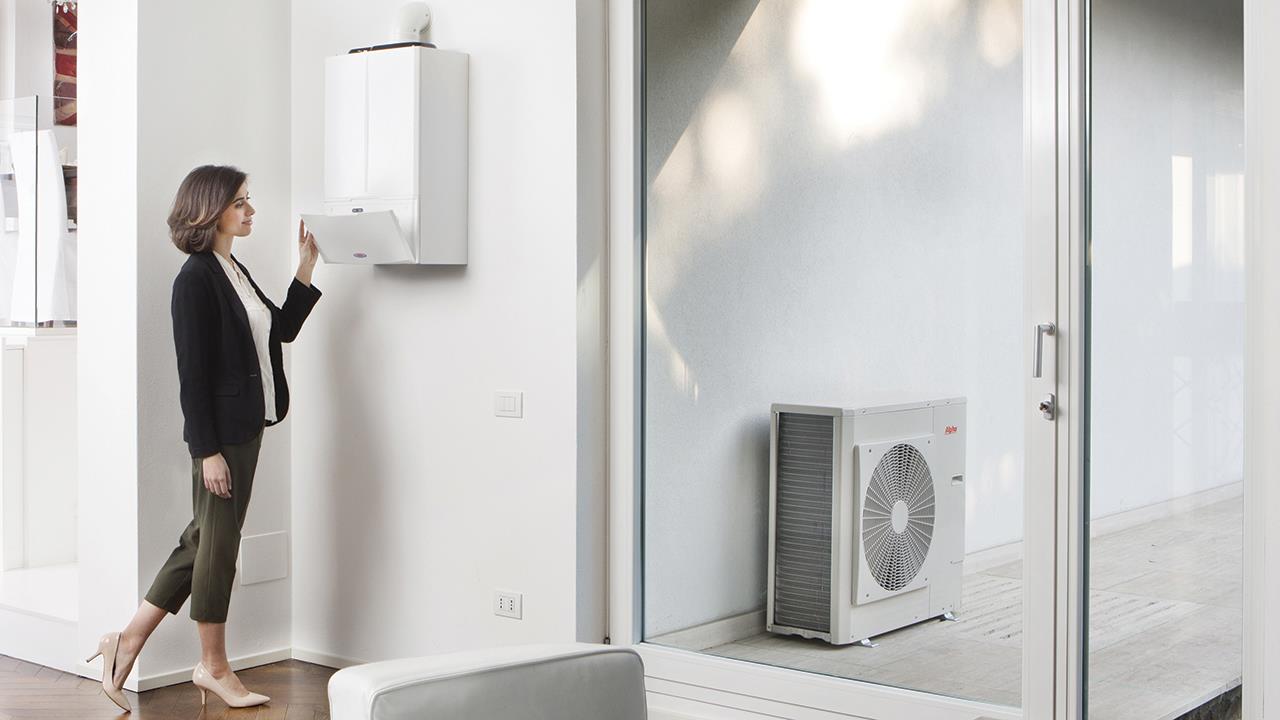

The domestic heating sector will be going through a genuine revolution over the next few years. As the new Future Homes Standard comes into force, the government is regulating a shift away from the traditional gas boiler, taking us all into a low carbon future.
Domestic heating installers will already be well aware of options such as electric heat pumps coming onto the market. But while new homes can be designed for and installed with heat pump heating and hot water systems, it is a different story for the millions of existing homes; not all of which are suitable for a heat pump-only approach.
Householders will undoubtedly be looking to installers to help them decide what the future of heating could look like in their homes. At Alpha, for example, we’ve been working with installers for many years to help them understand the technologies we are introducing to the market so that they can help their customers make the right choices.
We also like to offer our insights into the challenges that householders are facing, and help answer their questions.
One option we have been discussing with our installers is the hybrid approach to heating and hot water provision. A heat pump is installed to provide space heating, with a boiler retained (or updated) to provide hot water. The hybrid system works equally well with a heat pump and combi, LPG, or oil boiler, which means it is a good option for off-gas grid homes too.
This approach has several benefits for householders. Homes with lower insulation levels, or properties with a high heating needs can benefit from retaining a boiler to provide a boost to the heating system during times of peak demand; in cooler months, for example. And the boiler can continue to provide hot water, reducing the size of the heat pump needed.
What’s more, taking out a gas boiler to replace it with an electric heat pump is a significant project for many homeowners. As installers will be aware, if the heat pump is also providing hot water, then a hot water cylinder is required.
Households with a combi boiler will have to find a space large enough for that extra piece of equipment, which is not always easy in modern homes. Retaining a combi boiler to provide hot water means that the householder benefits from low carbon heat pump heating, with on-tap hot water from the gas boiler.
Perhaps one of the most important benefits of a hybrid boiler/heat pump approach is that the system can be set up to switch automatically between fuels, selecting the most efficient. Given the current situation with energy price rises, most homeowners will benefit from a system that provides their hot water and heating at the best price all the time.
A further factor homeowners may find attractive is that installing a hybrid option allows them to retain the use of their existing radiators, whereas switching entirely to a heat pump heating system is likely to require an upgrade to larger and more efficient radiator models to ensure the system operates effectively.
The UK government has set a goal of installing 600,000 heat pumps per year from 2028 onwards. We can’t achieve this number through installations in new homes alone. As a result, installers on the front line of the domestic heating sector will be helping to deliver this tough objective. An approach that can introduce new technology alongside the familiar boiler should make this easier to achieve.
With the hybrid boiler/heat pump approach, it is vital, however, for installers to understand the requirements of this sort of system; they will need to ensure that it is set up correctly for optimum performance.
Like other manufacturers, Alpha is providing installers the information and advice they need to help homeowners embrace the new technologies and their benefits. Our website provides useful FAQs to help answer common installer questions, and our experts are here to provide technical advice.
Although switching away from the well-known gas boiler is a challenge, it also provides an opportunity for installers to extend their business into new areas.
If you'd like to keep up-to-date with the latest developments in the heating and plumbing industry, why not subscribe to our weekly newsletters? Just click the button below and you can ensure all the latest industry news and new product information lands in your inbox every week.